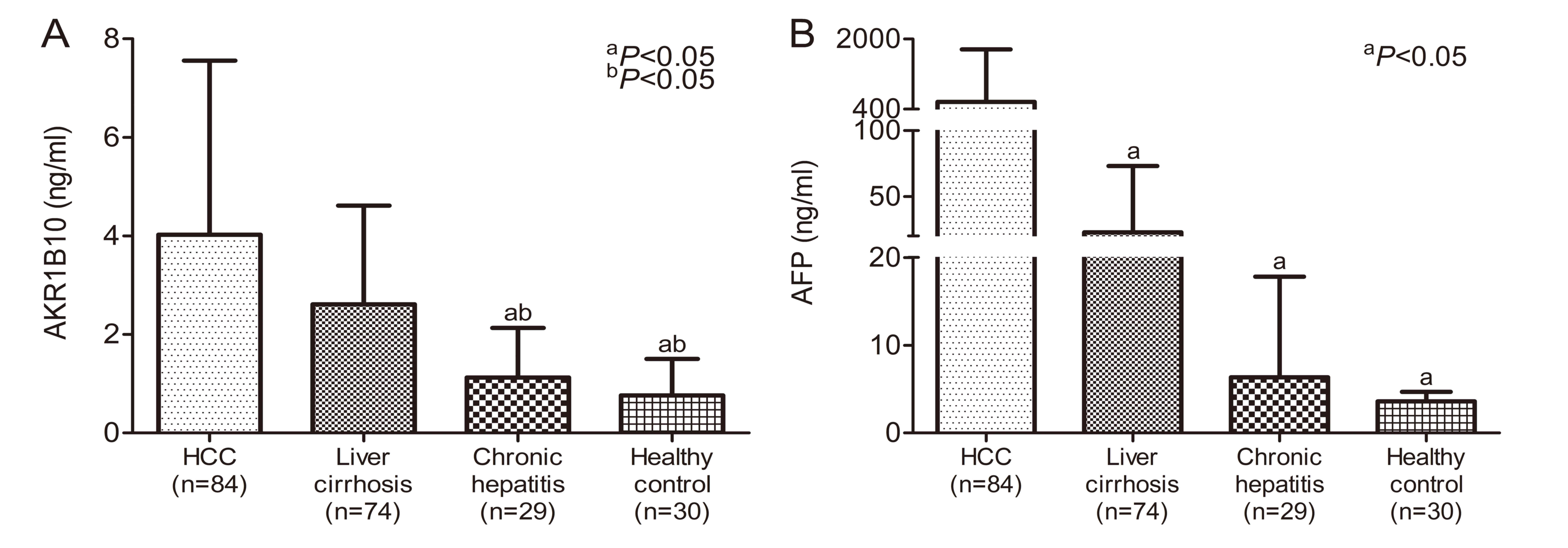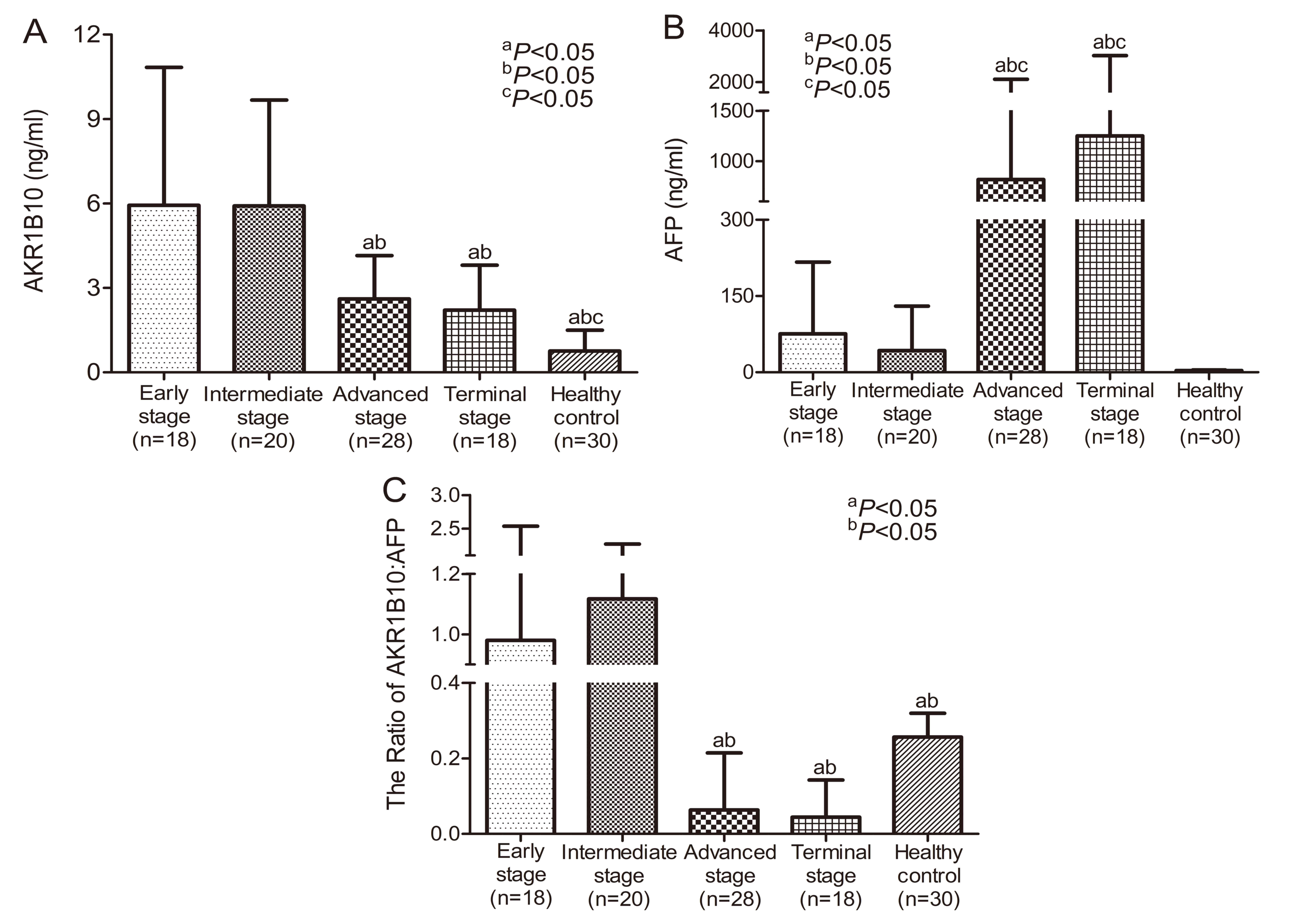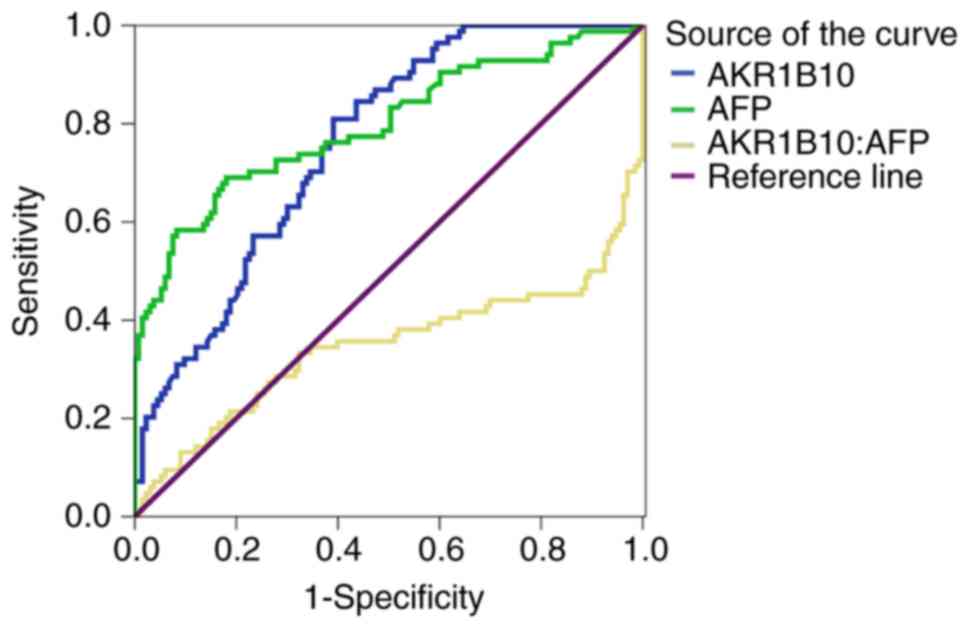|
1
|
Ministry of Health of the People's
Republic of China: Diagnosis, management, and treatment of
hepatocellular carcinoma (V2011). J Clini Hepatol. 11:1141–1159.
2011.(In Chinese).
|
|
2
|
Global Burden of Disease Cancer C, .
Fitzmaurice C, Dicker D, Pain A, Hamavid H, Moradi-Lakeh M,
MacIntyre MF, Allen C, Hansen G, Woodbrook R, et al: The global
burden of cancer 2013. JAMA Oncol. 1:505–527. 2015. View Article : Google Scholar : PubMed/NCBI
|
|
3
|
El-Serag HB: Hepatocellular carcinoma. N
Engl J Med. 365:1118–1127. 2011. View Article : Google Scholar : PubMed/NCBI
|
|
4
|
McGlynn KA, Petrick JL and London WT:
Global epidemiology of hepatocellular carcinoma: An emphasis on
demographic and regional variability. Clin Liver Dis. 19:223–238.
2015. View Article : Google Scholar : PubMed/NCBI
|
|
5
|
Yang X, Gao JY, Wang J and Cheng J: The
impact of anti-HBV treatment on the occurrence and recurrence of
hepatocellular carcinoma: Focus on Asian studies. Discov Med.
19:89–99. 2015.PubMed/NCBI
|
|
6
|
Forner A, Llovet JM and Bruix J:
Hepatocellular carcinoma. Lancet. 379:1245–1255. 2012. View Article : Google Scholar : PubMed/NCBI
|
|
7
|
Bruix J and Sherman M; Practice Guidelines
Committee, American Association for the Study of Liver Diseases, .
Management of hepatocellular carcinoma. Hepatology. 42:1208–1236.
2005. View Article : Google Scholar : PubMed/NCBI
|
|
8
|
Tsuchiya N, Sawada Y, Endo I, Saito K,
Uemura Y and Nakatsura T: Biomarkers for the early diagnosis of
hepatocellular carcinoma. World J Gastroenterol. 21:10573–10583.
2015. View Article : Google Scholar : PubMed/NCBI
|
|
9
|
Spangenberg HC, Thimme R and Blum HE:
Serum markers of hepatocellular carcinoma. Semin Liver Dis.
26:385–390. 2006. View Article : Google Scholar : PubMed/NCBI
|
|
10
|
Aghoram R, Cai P and Dickinson JA:
Alpha-foetoprotein and/or liver ultrasonography for screening of
hepatocellular carcinoma in patients with chronic hepatitis B.
Cochrane Database Syst Rev. CD002799:2012.
|
|
11
|
Chun S, Rhie SY, Ki CS, Kim JE and Park
HD: Evaluation of alpha-fetoprotein as a screening marker for
hepatocellular carcinoma in hepatitis prevalent areas. Ann Hepatol.
14:882–888. 2015. View Article : Google Scholar : PubMed/NCBI
|
|
12
|
Giannini EG, Marenco S, Borgonovo G,
Savarino V, Farinati F, Del Poggio P, Rapaccini GL, Anna Di Nolfo
M, Benvegnù L, Zoli M, et al: Alpha-fetoprotein has no prognostic
role in small hepatocellular carcinoma identified during
surveillance in compensated cirrhosis. Hepatology. 56:1371–1379.
2012. View Article : Google Scholar : PubMed/NCBI
|
|
13
|
Dai M, Chen X, Liu X, Peng Z, Meng J and
Dai S: Diagnostic value of the combination of Golgi Protein 73 and
alpha-fetoprotein in hepatocellular carcinoma: A meta-analysis.
PLoS One. 10:e01400672015. View Article : Google Scholar : PubMed/NCBI
|
|
14
|
Li D, Mallory T and Satomura S: AFP-L3: A
new generation of tumor marker for hepatocellular carcinoma. Clin
Chim Acta. 313:15–19. 2001. View Article : Google Scholar : PubMed/NCBI
|
|
15
|
Sato Y, Nakata K, Kato Y, Shima M, Ishii
N, Koji T, Taketa K, Endo Y and Nagataki S: Early recognition of
hepatocellular carcinoma based on altered profiles of
alpha-fetoprotein. N Engl J Med. 328:1802–1806. 1993. View Article : Google Scholar : PubMed/NCBI
|
|
16
|
Marrero JA, Feng Z, Wang Y, Nguyen MH,
Befeler AS, Roberts LR, Reddy KR, Harnois D, Llovet JM, Normolle D,
et al: Alpha-fetoprotein, des-gamma carboxyprothrombin, and
lectin-bound alpha-fetoprotein in early hepatocellular carcinoma.
Gastroenterology. 137:110–118. 2009. View Article : Google Scholar : PubMed/NCBI
|
|
17
|
Sterling RK, Jeffers L, Gordon F, Venook
AP, Reddy KR, Satomura S, Kanke F, Schwartz ME and Sherman M:
Utility of Lens culinaris agglutinin-reactive fraction of
alpha-fetoprotein and des-gamma-carboxy prothrombin, alone or in
combination, as biomarkers for hepatocellular carcinoma. Clin
Gastroenterol Hepatol. 7:104–113. 2009. View Article : Google Scholar : PubMed/NCBI
|
|
18
|
Lok AS, Sterling RK, Everhart JE, Wright
EC, Hoefs JC, Di Bisceglie AM, Morgan TR, Kim HY, Lee WM, Bonkovsky
HL and Dienstag JL; HALT-C Trial Group, . Des-gamma-carboxy
prothrombin and alpha-fetoprotein as biomarkers for the early
detection of hepatocellular carcinoma. Gastroenterology.
138:493–502. 2010. View Article : Google Scholar : PubMed/NCBI
|
|
19
|
Ertle JM, Heider D, Wichert M, Keller B,
Kueper R, Hilgard P, Gerken G and Schlaak JF: A combination of
α-fetoprotein and des-U-carboxy prothrombin is superior in
detection of hepatocellular carcinoma. Digestion. 87:121–131. 2013.
View Article : Google Scholar : PubMed/NCBI
|
|
20
|
Pote N, Cauchy F, Albuquerque M, Voitot H,
Belghiti J, Castera L, Puy H, Bedossa P and Paradis V: Performance
of PIVKA-II for early hepatocellular carcinoma diagnosis and
prediction of microvascular invasion. J Hepatol. 62:848–854. 2015.
View Article : Google Scholar : PubMed/NCBI
|
|
21
|
Ma J, Yan R, Zu X, Cheng JM, Rao K, Liao
DF and Cao D: Aldo-keto reductase family 1 B10 affects fatty acid
synthesis by regulating the stability of acetyl-CoA
carboxylase-alpha in breast cancer cells. J Biol Chem.
283:3418–3423. 2008. View Article : Google Scholar : PubMed/NCBI
|
|
22
|
Wang C, Yan R, Luo D, Watabe K, Liao DF
and Cao D: Aldo-keto reductase family 1 member B10 promotes cell
survival by regulating lipid synthesis and eliminating carbonyls. J
Biol Chem. 284:26742–26748. 2009. View Article : Google Scholar : PubMed/NCBI
|
|
23
|
Cao D, Fan ST and Chung SS: Identification
and characterization of a novel human aldose reductase-like gene. J
Biol Chem. 273:11429–11435. 1998. View Article : Google Scholar : PubMed/NCBI
|
|
24
|
Conklin D, Prough R and Bhatanagar A:
Aldehyde metabolism in the cardiovascular system. Mol Biosyst.
3:136–150. 2007. View
Article : Google Scholar : PubMed/NCBI
|
|
25
|
Spite M, Baba SP, Ahmed Y, Barski OA,
Nijhawan K, Petrash JM, Bhatnagar A and Srivastava S: Substrate
specificity and catalytic efficiency of aldo-keto reductases with
phospholipid aldehydes. Biochem J. 405:95–105. 2007. View Article : Google Scholar : PubMed/NCBI
|
|
26
|
Yan R, Zu X, Ma J, Liu Z, Adeyanju M and
Cao D: Aldo-keto reductase family 1 B10 gene silencing results in
growth inhibition of colorectal cancer cells: Implication for
cancer intervention. Int J Cancer. 121:2301–2306. 2007. View Article : Google Scholar : PubMed/NCBI
|
|
27
|
Martin HJ and Maser E: Role of human
aldo-keto-reductase AKR1B10 in the protection against toxic
aldehydes. Chem Biol Interact. 178:145–150. 2009. View Article : Google Scholar : PubMed/NCBI
|
|
28
|
Zhong L, Liu Z, Yan R, Johnson S, Zhao Y,
Fang X and Cao D: Aldo-keto reductase family 1 B10 protein
detoxifies dietary and lipid-derived alpha, beta-unsaturated
carbonyls at physiological levels. Biochem Biophys Res Commun.
387:245–250. 2009. View Article : Google Scholar : PubMed/NCBI
|
|
29
|
Crosas B, Hyndman DJ, Gallego O, Martras
S, Parés X, Flynn TG and Farrés J: Human aldose reductase and human
small intestine aldose reductase are efficient retinal reductases:
Consequences for retinoid metabolism. Biochem J. 373:973–979. 2003.
View Article : Google Scholar : PubMed/NCBI
|
|
30
|
Gallego O, Belyaeva OV, Porte S, Ruiz FX,
Stetsenko AV, Shabrova EV, Kostereva NV, Farrés J, Parés X and
Kedishvili NY: Comparative functional analysis of human
medium-chain dehydrogenases, short-chain dehydrogenases/reductases
and aldo-keto reductases with retinoids. Biochem J. 399:101–109.
2006. View Article : Google Scholar : PubMed/NCBI
|
|
31
|
Matkowskyj KA, Bai H, Liao J, Zhang W, Li
H, Rao S, Omary R and Yang GY: Aldoketoreductase family 1B10
(AKR1B10) as a biomarker to distinguish hepatocellular carcinoma
from benign liver lesions. Hum Pathol. 45:834–843. 2014. View Article : Google Scholar : PubMed/NCBI
|
|
32
|
Heringlake S, Hofdmann M, Fiebeler A,
Manns MP, Schmiegel W and Tannapfel A: Identification and
expression analysis of the aldo-ketoreductase1-B10 gene in primary
malignant liver tumours. J Hepatol. 52:220–227. 2010. View Article : Google Scholar : PubMed/NCBI
|
|
33
|
Luo DX, Huang MC, Ma J, Gao Z, Liao DF and
Cao D: Aldo-keto reductase family 1, member B10 is secreted through
a lysosome-mediated non-classical pathway. Biochem J. 438:71–80.
2011. View Article : Google Scholar : PubMed/NCBI
|
|
34
|
Sato S, Genda T, Hirano K, Tsuzura H,
Narita Y, Kanemitsu Y, Kikuchi T, Iijima K, Wada R and Ichida T:
Up-regulated aldo-keto reductase family 1 member B10 in chronic
hepatitis C: Association with serum alpha-fetoprotein and
hepatocellular carcinoma. Liver Int. 32:1382–1390. 2012. View Article : Google Scholar : PubMed/NCBI
|
|
35
|
Mori M, Genda T, Ichida T, Murata A, Kamei
M, Tsuzura H, Sato S, Narita Y, Kanemitsu Y, Ishikawa S, et al:
Aldo-keto reductase family 1 member B10 is associated with
hepatitis B virus-related hepatocellular carcinoma risk. Hepatol
Res. 47:E85–E93. 2017. View Article : Google Scholar : PubMed/NCBI
|
|
36
|
Murata A, Genda T, Ichida T, Amano N, Sato
S, Tsuzura H, Sato S, Narita Y, Kanemitsu Y, Shimada Y, et al:
Pretreatment AKR1B10 expression predicts the risk of hepatocellular
carcinoma development after hepatitis C virus eradication. World J
Gastroenterol. 22:7569–7578. 2016. View Article : Google Scholar : PubMed/NCBI
|
|
37
|
Schmitz KJ, Sotiropoulos GC, Baba HA,
Schmid KW, Müller D, Paul A, Auer T, Gamerith G and Loeffler-Ragg
J: AKR1B10 expression is associated with less aggressive
hepatocellular carcinoma: A clinicopathological study of 168 cases.
Liver Int. 31:810–816. 2011. View Article : Google Scholar : PubMed/NCBI
|
|
38
|
Ha SY, Song DH, Lee JJ, Lee HW, Cho SY and
Park CK: High expression of aldo-keto reductase 1B10 is an
independent predictor of favorable prognosis in patients with
hepatocellular carcinoma. Gut Liver. 8:648–654. 2014. View Article : Google Scholar : PubMed/NCBI
|
|
39
|
Chinese Society of Hepatology and Chinese
Society of Infectious Diseases, Chinese Medical Association: The
guideline of prevention and treatment for chronic hepatitis B (2010
version). Zhonghua Gan Zang Bing Za Zhi. 19:13–24. 2011.(In
Chinese). PubMed/NCBI
|
|
40
|
Llovet JM, Brú C and Bruix J: Prognosis of
hepatocellular carcinoma: The BCLC staging classification. Semin
Liver Dis. 19:329–338. 1999. View Article : Google Scholar : PubMed/NCBI
|
|
41
|
Bruix J and Sherman M; American
Association for the Study of Liver Diseases, . Management of
hepatocellular carcinoma: An update. Hepatology. 53:1020–1022.
2011. View Article : Google Scholar : PubMed/NCBI
|
|
42
|
Trevisani F, D'Intino PE, Morselli-Labate
AM, Mazzella G, Accogli E, Caraceni P, Domenicali M, De Notariis S,
Roda E and Bernardi M: Serum alpha-fetoprotein for diagnosis of
hepatocellular carcinoma in patients with chronic liver disease:
Influence of HBsAg and anti-HCV status. J Hepatol. 34:570–575.
2001. View Article : Google Scholar : PubMed/NCBI
|
|
43
|
Bellissimo F, Pinzone MR, Cacopardo B and
Nunnari G: Diagnostic and therapeutic management of hepatocellular
carcinoma. World J Gastroenterol. 21:12003–12021. 2015. View Article : Google Scholar : PubMed/NCBI
|
|
44
|
Chaiteerakij R, Zhang X, Addissie BD,
Mohamed EA, Harmsen WS, Theobald PJ, Peters BE, Balsanek JG, Ward
MM, Giama NH, et al: Combinations of biomarkers and Milan criteria
for predicting hepatocellular carcinoma recurrence after liver
transplantation. Liver Transpl. 21:599–606. 2015. View Article : Google Scholar : PubMed/NCBI
|

















